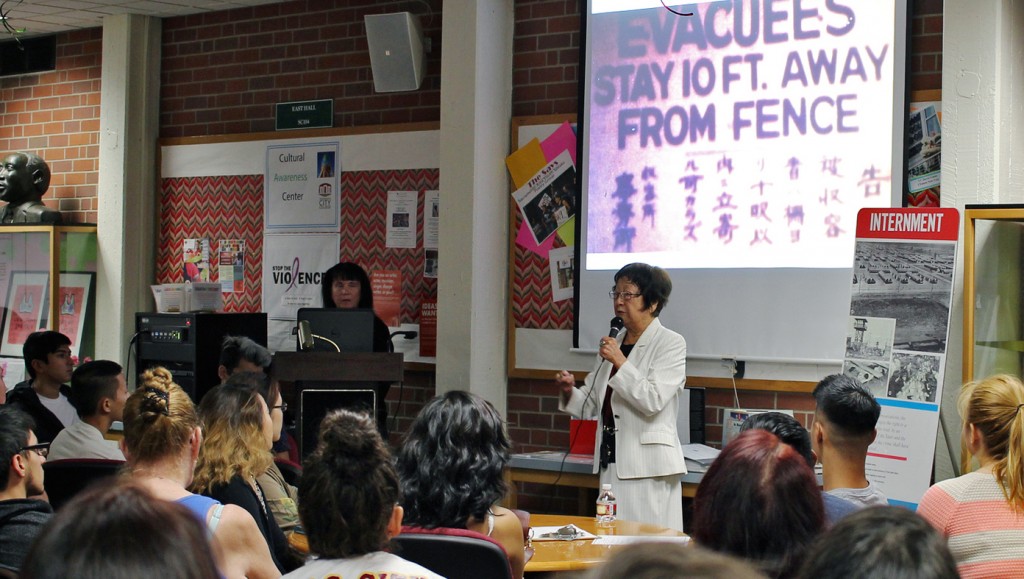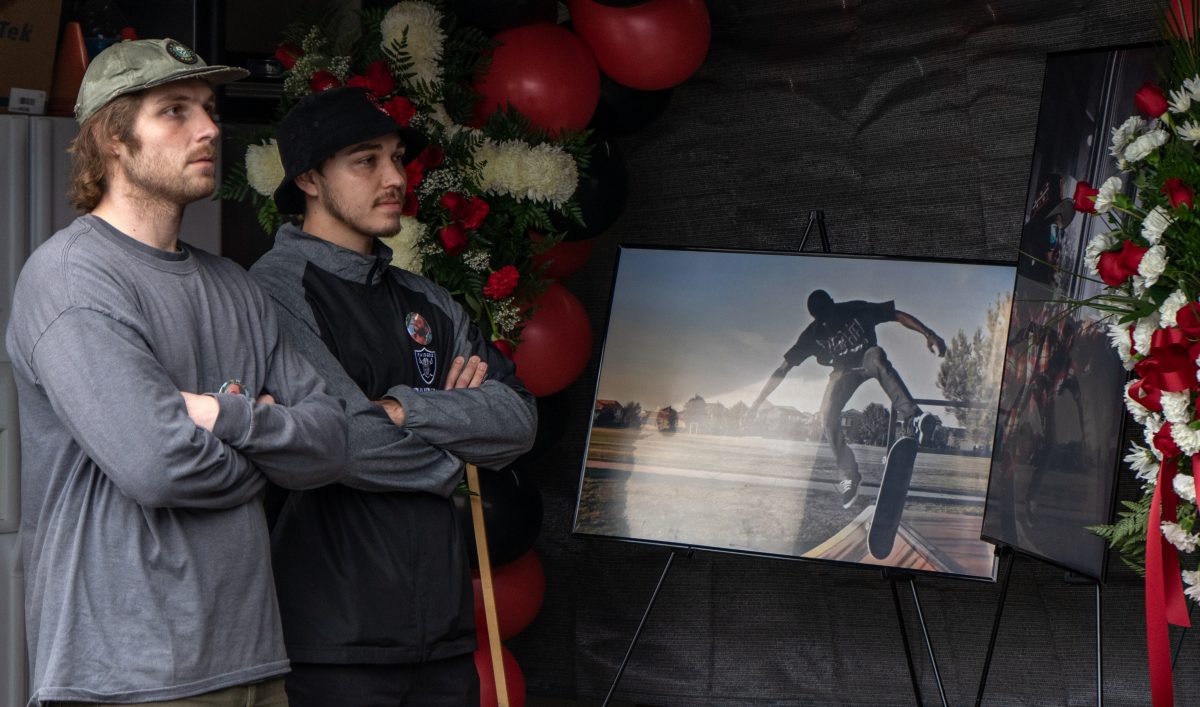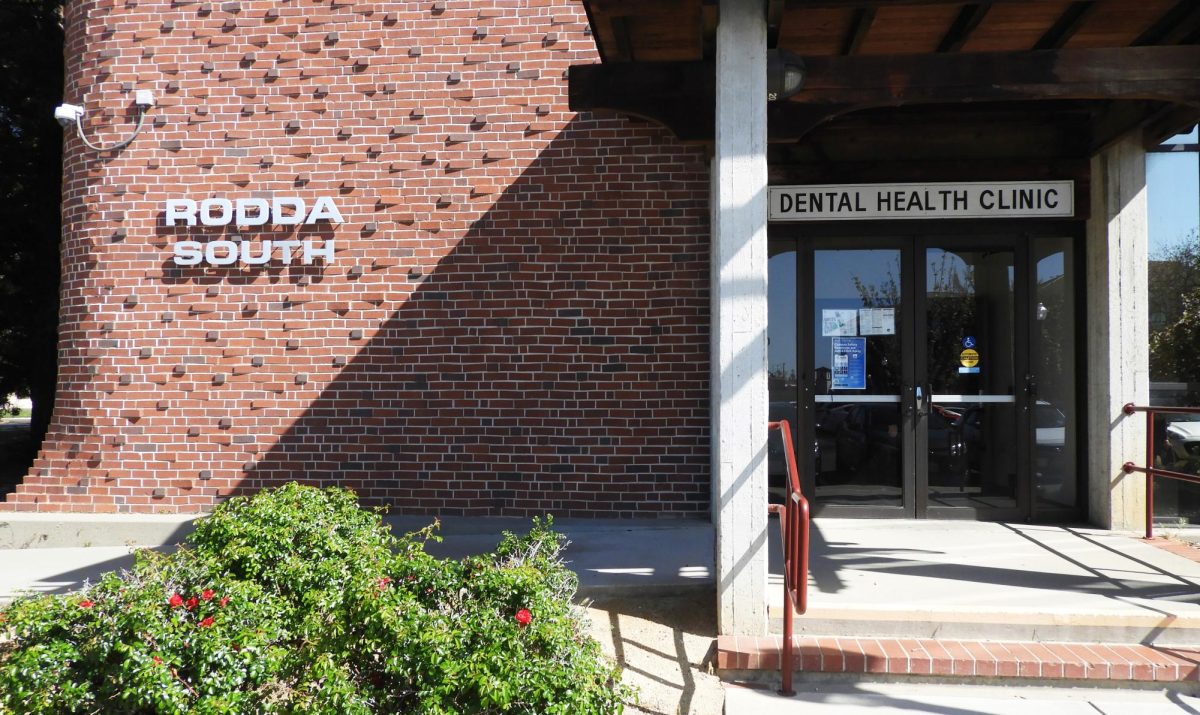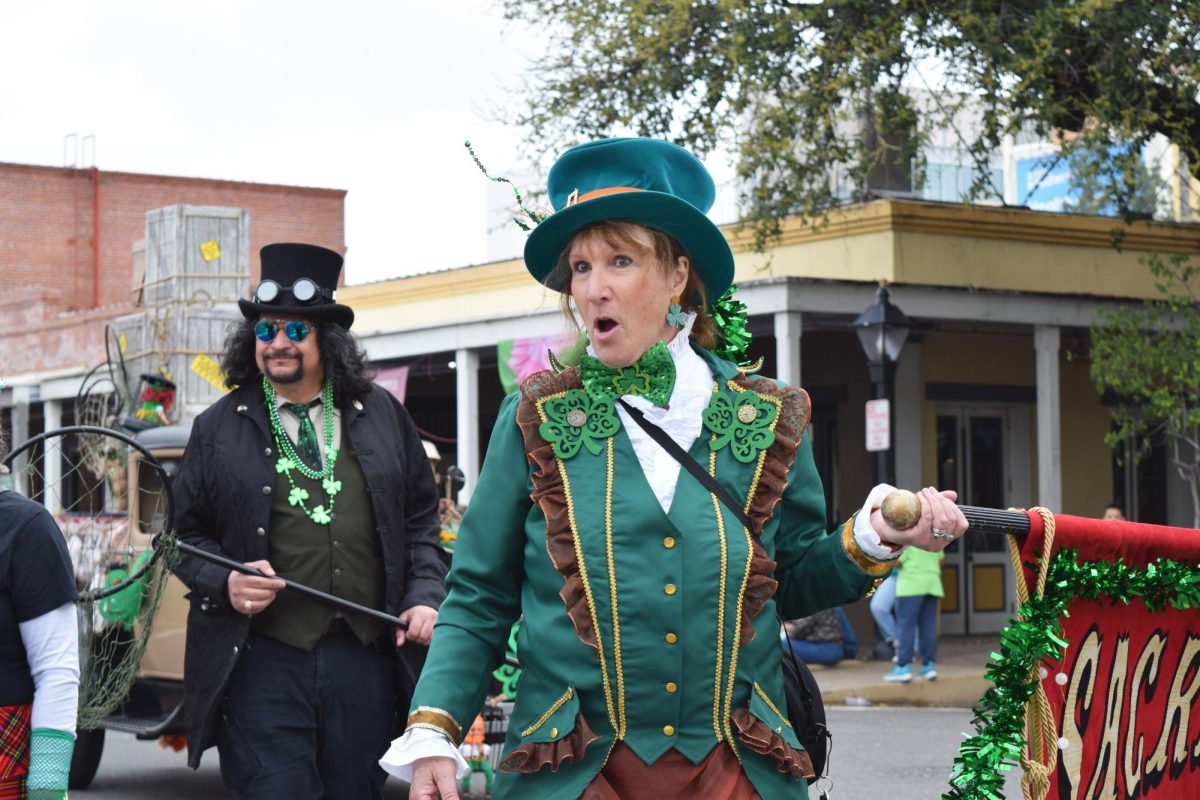
Kiyo Sato is a woman rich with history. From being forced into an internment camp after the Pearl Harbor attack to serving as a nurse in the U.S. Air Force, it’s safe to say she did not lead an ordinary life. Her memoirs are encompassed in the book “Kiyo’s Story,” and on Oct. 8 she retold her tale at City College.
Sato, a Japanese-American, lived in Sacramento and was attending City College when she and her family, along with 110,000 to 120,000 others of Japanese ancestry, were relocated and forced into prison camps during World War II for fear of collaboration with Japan. The Cultural Awareness Center was packed wall to wall with students and staff, waiting quietly to hear Sato’s story.
Despite her small frame, Sato does not have the frailty you would expect of a 92 year old. She is lively, sharp, and doesn’t shy away from questions from the crowd. A student asked Sato, knowing everything she knows now, what would she tell her younger self. As she laughed, she explained if she could tell anything to the teenage girl that was crammed into the back of a truck and driven to an internment camp across the country, it would be that everything turns out okay.
Kiyo displayed an historical photo of a smiling man in Auburn. He was standing proudly in front of a shop window where there is a large sign posted, “WE DON’T WANT ANY JAPS BACK HERE… EVER!!!”
City College student Tianna Munsterman was shocked to learn the things many Japanese-Americans went through.
“If you’re American, you’re American. It doesn’t matter,” Munsterman stated, “It’s just really crazy to know that we pretty much isolated an entire race.”
It wasn’t until 1990 that the Japanese-American survivors received a letter of apology, and a mere $20,000 compensation for the years of their lives they spent in camps. The audience was visibly appalled, but Kiyo reassured everyone
“We are now in a good place, because of everything they did to protect the children,” she said.
Sato stressed the importance of American youth and commented that our nation does not care enough for the young.
“It’s just something we really don’t think about right now,” said Brandon Salcedo, a City College student who found the speech correlated with his cultural geography class. “When they talk about that it kind of brings back something dark that happened in the past.”
Despite the traumatic tale she recounted, Sato remained in good spirits. The last slide she displayed was a simple dandelion, which she relates to herself with a smile.
“I am an old dandelion puff now,” she said. “The wind is going to blow and there I go.”
Editor’s Note: Author Kiyo Sato will be speaking again at the Davis Center Wednesday, Oct. 21, in Room 119 from 9:30-10:50 a.m.





























